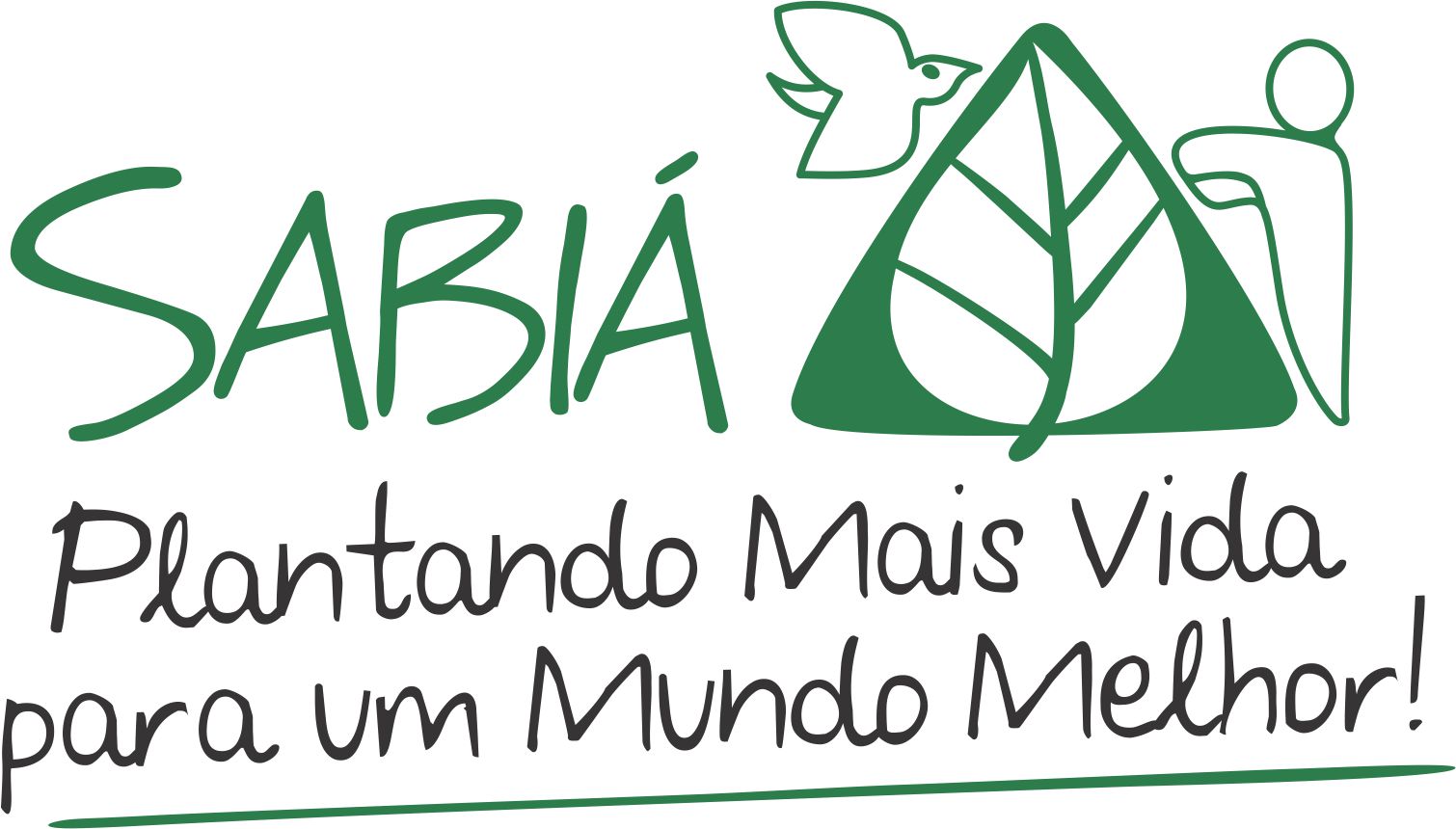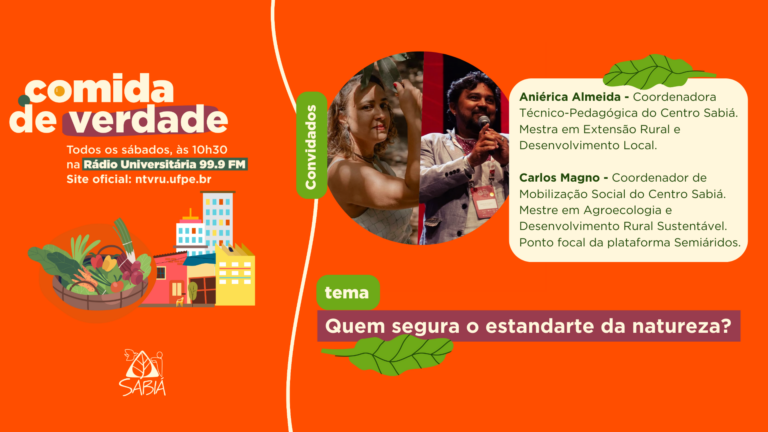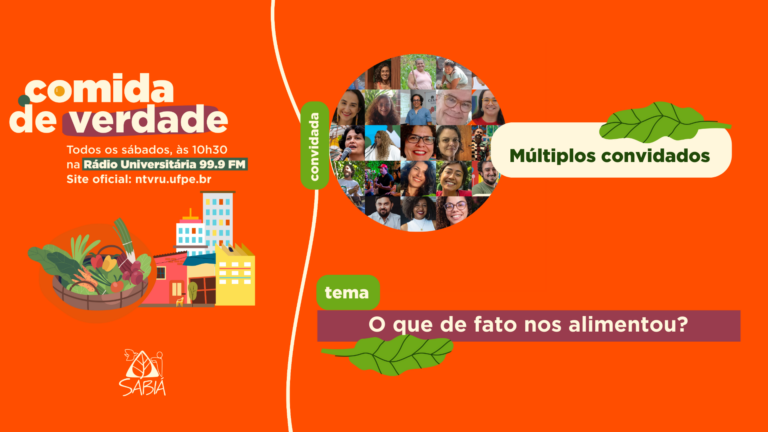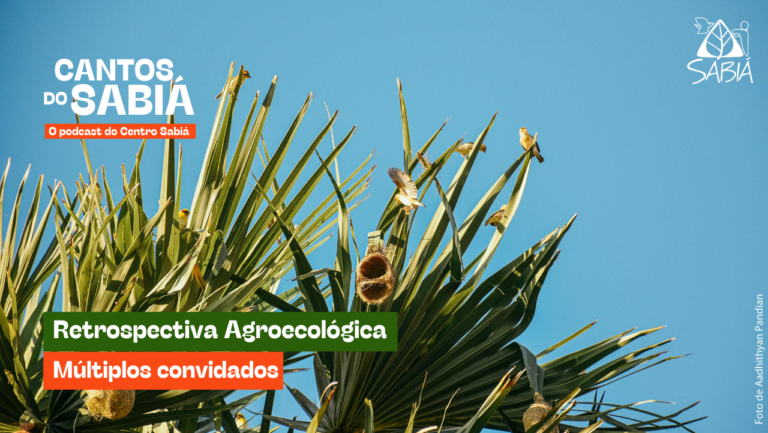Rural communities in Borborema will be visited by advisors and rural leaders from five Northeastern states
Verônica Pragrana
Journalist for AS-PTA and Rede Ater NE de Agroecologia
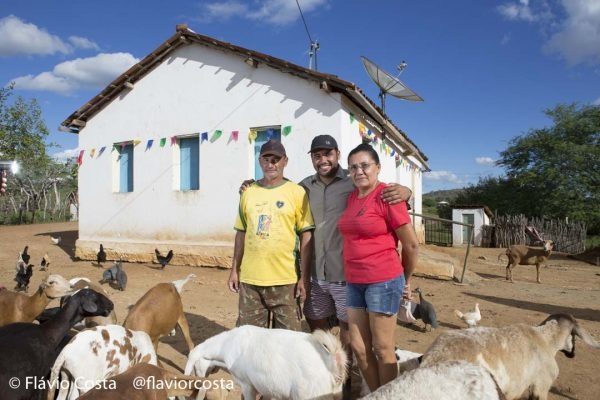
In the last week of April (from the 25th to the 28th), about 50 people will visit rural communities in three municipalities in the Borborema region, in Paraíba. They come from various territories of the Northeastern semi-arid region, located in Bahia, Sergipe, Pernambuco, Rio Grande do Norte, and Ceará, as well as from other regions in Paraíba, such as Curimataú and Cariri.
And what brings you here? The visitors want to understand how the communities of the Borborema Agroecológica organize themselves to overcome, in a collective way, challenges such as climate change, which has brought increasingly intense droughts and torrential rains concentrated in a few days. To do so, they will visit the Benefício communities, in the municipality of Esperança; Soares, in Queimadas; and Bom Sucesso, in Solânea.
In Soares, for example, the visiting group will hear from the people who are part of the community association how they have turned unity and interest in community life into concrete improvements for the lives of their families.
Together, the farming families managed, with their own resources, to repair the oldest cisterns in the community, built 20 years ago. Together they have managed to expand the number of families that have ecological stoves in their kitchens. Together, they are organizing to finance motorcycle and car licenses for young people and women in the community.
“After a training process that the community has experienced since 2020, more people are actively participating in the association. Mainly, the women who overcame their fear of leaving home to participate in trainings, seeking more knowledge. We had never gotten together to look at the history of the community. Just being aware of the reality in which we live changes a lot our way of relating in the community,” says Mateus Manassés, a young leader from Soares.
According to Mateus, a driver of this involvement in matters of collective interest was the strengthening of the Solidarity Rotating Funds. “These Funds were a slap in the face for everyone. Before, they already existed, but they were restricted to the purchase of sheep and goats and involved about 30 people. Today, we have more than 60 people participating in revolving fund groups of various kinds,” he says. The solidarity revolving funds work as a kind of community savings.
The farmer, animal breeder, and biologist added that, besides the moments in which they built together the community’s timeline, they were granted with an injection of resources that boosted the diversification of the products acquired through solidarity revolving funds, such as screens to fence the animal breeding area, the ecological stoves, and palms to renew the fields damaged by the cochineal. “From then on, we have learned to innovate more and more. With the resources that circulate in the groups from these funds we have already made cesspools, we have even bought dentures,” he adds.
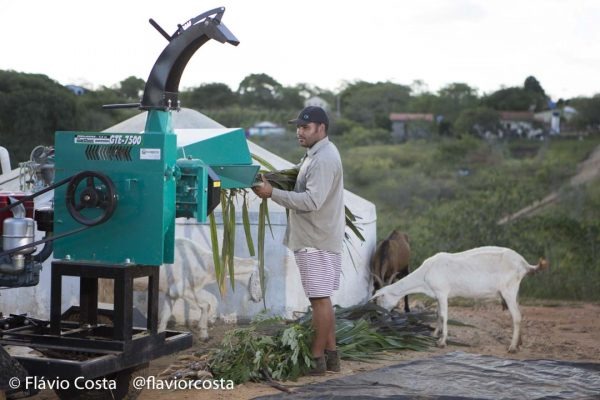
The training moments and investments were made possible by the Borborema Agroecológica project, which is part of the 11 initiatives executed in Latin America in the scope of the Knowledge Management for Family Farming Adaptation to Climate Change (INNOVA AF) project, financed by the International Fund for Agrarian Development (IFAD) and executed by the Inter-American Institute for Cooperation on Agriculture (IICA).
Organized communities – According to Paulo Petersen, from the national coordination of the NGO AS-PTA, which operates in the region in partnership with a group of rural workers’ unions – the Polo da Borborema, it is impossible to talk about strengthening the capacities of farming families to overcome the difficulties brought by droughts without developing initiatives that foster community self-organization.
“There is no community without collective action, without solidarity, without common action. Resilience will only be built if there is a resilient community, if there is a solidarity economy, strengthening of local self-organized processes,” assures Paulo Petersen.
Therefore, it is essential to nurture values such as unity and solidarity that inspire the collective management of the commons. And what are these common goods? “Everything that is important and valuable to the community and that it therefore organizes itself to take care of, such as water, seeds, forests, pastures, but also knowledge and collective equipment and infrastructure,” explains Denis Monteiro, AS-PTA’s technical advisor.
The visitors – All are part of non-governmental organizations (NGOs), which form the Northeast Agroecology ATER Network. ATER is the acronym for Assistência Técnica e Extensão Rural. In other words: these are organizations that advise rural and traditional communities with the objective of strengthening their organizations. This advisory action is guided by the principles of agroecology and living with the semi-arid.
Besides offering technical assistance with an agro-ecological focus, the ATER NE Network also influences the construction of policies, programs, and public actions to strengthen family agriculture, increasing the supply of healthy food, free from poisons and transgenics, to the Brazilian population.
“The meeting takes place in a moment of great expectation for the resumption of effective actions by the State to support family agriculture and promote food security. For 15 years (from 2000 to 2015), the Semiarid lived a cycle of very important federal policies, which were dismantled between 2016 and 2022. With the beginning of the new federal government, Rede ATER NE and the social movements in the countryside are organizing themselves to exercise participative democracy and engage in the construction of a new cycle of public policies”, Denis points out.
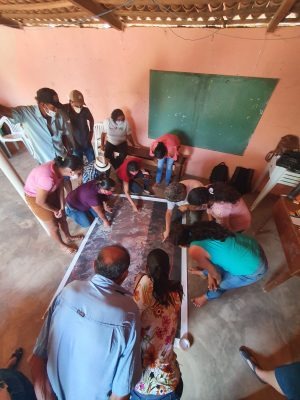
And, after all, what is agroecology? “It is the application of the principles of ecology to agriculture,” Denis replies. He explains that, through a set of practices, agroecological agriculture associates the production of diverse foods with respect for nature’s cycles.
But besides being an agricultural practice, agroecology is also a science. “As a science, agroecology is built by the interaction between popular knowledge and that which comes from academia,” he adds.
And agroecology also has a social movement bias, which addresses issues such as inequality between men and women, labor relations in agriculture and rural areas, defense of the rights of family and peasant agriculture, indigenous peoples, quilombolas, and other traditional peoples and communities, in addition to the struggles to denounce patriarchy and structural racism.
“It is, therefore, a movement committed to deep transformations in our societies marked by inequality, injustice, and various forms of violence, especially against the poorest,” assures the agronomist.
Nothing found.

